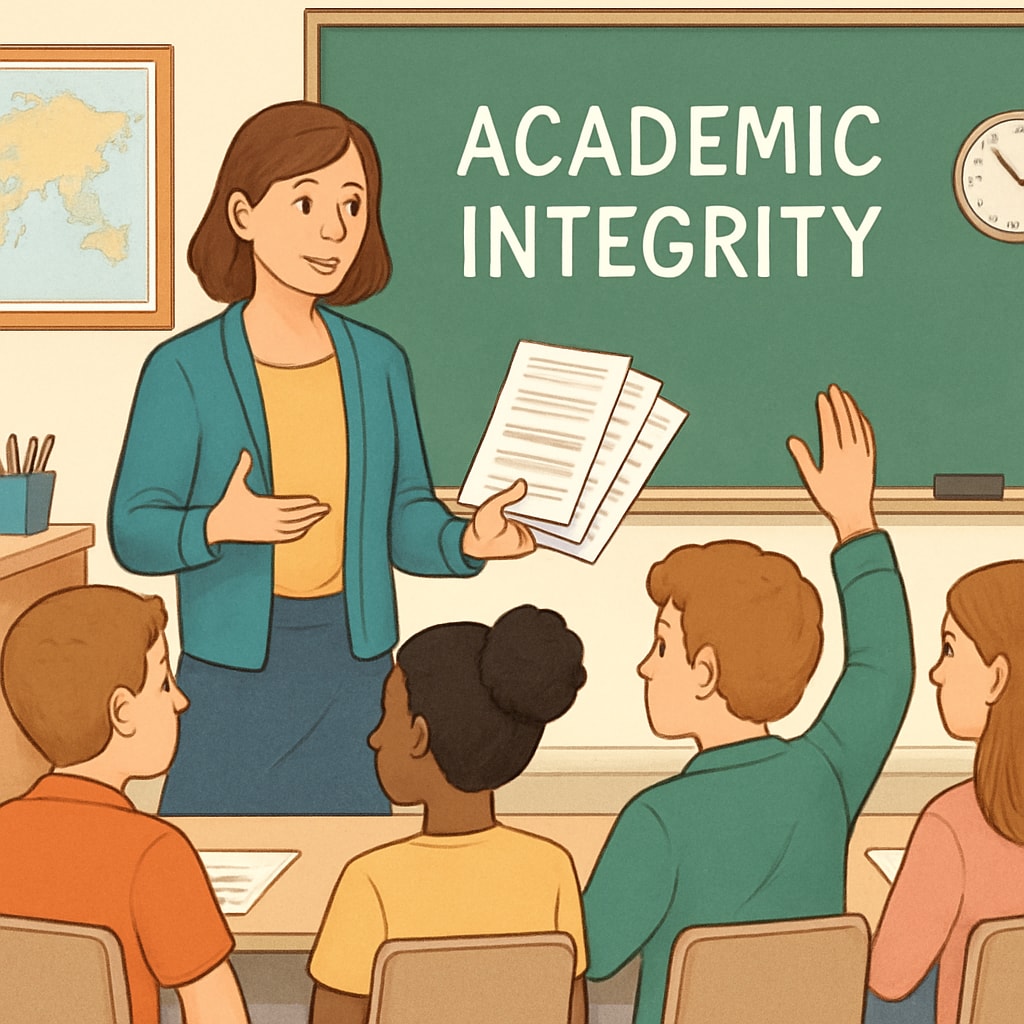Professors misjudging students with plagiarism accusations can lead to profound consequences. These errors, though sometimes unintentional, undermine the trust between educators and students and can negatively affect a student’s learning motivation, psychological well-being, and academic confidence. In K12 educational systems, where students are still developing critical thinking and research skills, wrongful accusations not only hinder their growth but create lasting scars. It is crucial to examine why these mistakes occur and advocate for transparent mechanisms to ensure fairness and accountability in academic settings.

Why Mistaken Plagiarism Accusations Happen
Misguided plagiarism accusations often stem from a lack of understanding of student capabilities, over-reliance on automated plagiarism detection tools, or biases that cloud judgment. For example, tools designed to identify plagiarism are not infallible—they can flag common phrases or incorrectly interpret citations as copied material. Furthermore, educators may misinterpret a student’s advanced writing style as being “too good” for their age, leading to unwarranted suspicions. These issues highlight a need for caution and thorough investigation before making accusations.
In addition, some educators may unintentionally project their own frustrations or assumptions onto students, mistaking genuine effort for dishonesty. This pattern is particularly harmful in K12 settings, where young learners rely on positive reinforcement to build their confidence and skills.
The Harmful Impact on Students
The psychological and academic effects of wrongful plagiarism accusations can be devastating. Students who are falsely accused often experience feelings of shame, anxiety, and alienation. These emotions can deter them from engaging in academic activities, fearing further accusations. Additionally, the stigma of being labeled as dishonest can disrupt their relationships with peers and educators, leading to isolation.
Beyond mental health implications, such accusations can erode a student’s motivation to learn and take intellectual risks. For example, a student who is accused of plagiarism for submitting a well-researched paper may become hesitant to engage deeply with future assignments. This cycle of fear and hesitation stifles creativity and critical thinking, which are essential components of education.
Key Impacts of Wrongful Accusations:
- Increased anxiety and stress levels
- Loss of trust in educators and institutions
- Disrupted academic progress and performance
- Damaged peer relationships and social standing

Establishing Fair and Transparent Systems
To prevent the damaging effects of wrongful plagiarism accusations, educational institutions must establish fair and transparent systems for addressing academic integrity violations. These systems should prioritize thorough investigations, clear communication, and opportunities for students to defend themselves. For instance, a step-by-step process that involves reviewing evidence, consulting the accused student, and allowing for appeals can significantly reduce errors.
Moreover, educators should receive training on plagiarism detection tools and ethical practices to ensure their judgments are informed and unbiased. This training should emphasize the importance of understanding cultural differences in citation practices and the developmental stages of students. Additionally, fostering open dialogue about academic integrity standards can help students and teachers align their expectations and minimize misunderstandings.
Examples of Best Practices:
- Implementing multi-step review processes for plagiarism accusations
- Providing training for educators on bias awareness and plagiarism detection
- Establishing student support systems to address accusations
- Encouraging collaboration between educators and students to ensure mutual understanding of academic expectations
Conclusion: Moving Forward with Fairness
Wrongful plagiarism accusations are not merely administrative errors—they have deep-rooted consequences for students and the educational environment. By recognizing the causes and addressing the impacts of these accusations, institutions can create systems that nurture trust and uphold academic integrity. Professors and educators must act as mentors, not adversaries, to inspire students to thrive intellectually.
As the academic world evolves, transparency, fairness, and empathy must remain central to education systems. Only then can we ensure that students are empowered to learn and contribute without fear of unjustified accusations.
Readability guidance: Maintain concise paragraphs and lists for clarity; use active voice and transition words consistently; ensure examples and evidence support the argument effectively.


